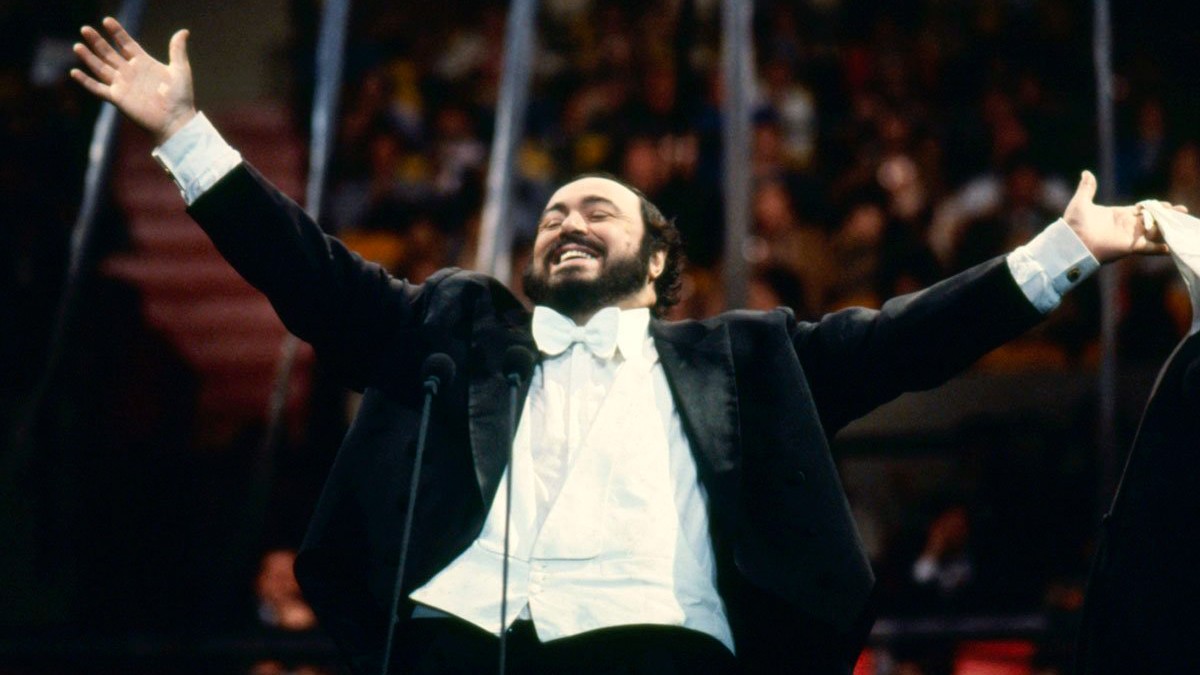The golden pipes and rotund frame of Italian tenor Luciano Pavarotti (1935-2007) are on rich and repeated display in the new biographical documentary Pavarotti. It opens Friday at the Cedar Lee.
Director Ron Howard wanted to make a move about more than a singer. He wanted to make a movie about a man: "the voice, the man, the drama, the legend," goes the tagline. And so he has gathered not only footage of Pavarotti's performances, from his earliest operas in the 1960s to his sold-out stadium shows in the '80s and '90s, to trace a singular musical career that made opera mainstream; he has also collected interviews with family, friends, business associates and contemporary singers to capture the full spectrum of Pavarotti's life and the magnitude of his contribution to music.
Audiences will no doubt want to hear the voice, though, to be reminded of what one soprano in the film calls "heaven on earth," and another calls "probably the greatest of all time." Bono is a talking head in the film and says that Pavarotti brought his whole life with him to every song, that audiences could hear his life in every note. Howard's movie makes this process much less abstract.
The towering force of Pavarotti's voice is most convincing when considered alongside others. During annual charity concerts that he organized in Italy, Pavarotti would sing next to pop and rock stars. This union was not favorably received. Pavarotti is a classically trained operatic singer whose voice is much purer and stronger than any rock star he might've invited, and critics panned these concerts as an ugly mix of high and low-brow music. But Pavarotti said that with all his heart, he did not care. He became a committed philanthropist and put on these concerts to raise money for various causes, including childhood cancer and the war in Bosnia.
But again, the height of his range and the expression he achieved in the upper registers was and remains peerless. Even Placido Domingo and Jose Carreras, the other two of the "Three Tenors," were no match for him.
While the film charts the major beats of his life and career — wife, children, fame, professional aimlessness, new love — it is also a primer on operas and classical voice performance. We learn, for example, that the "high C" is the golden pinnacle of the operatic tenor voice, and that Pavarotti was the "king of the high Cs" because of the apparent effortlessness with which he hit that blistering, impossible note. The opera La Fille Du Regiment, for example, famously requires of the tenor "no fewer than nine high Cs." The film shows footage of that performance. But more importantly, it shows how his effortless range was undergirded by years of study and rigorous technique.
Pavarotti's signature aria was "Nessun Dorma" from the Italian opera Turandot, by Giacomo Puccini. Pavarotti stunned the world in 1990 with his performance in Milan for the World Cup, which brought the song to worldwide attention. For fans of Pavarotti, no biography would be complete without a full, glorious performance of it. Howard saves it for the finale, a kind of encore, knowing that there'd be no stronger way to end an experience with the maestro.











